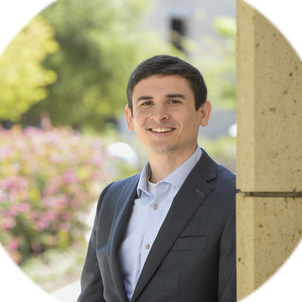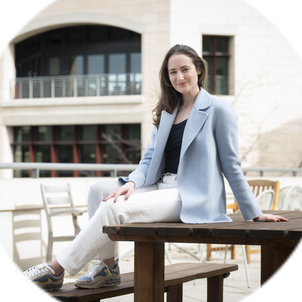My family is a bit traditional and conservative; they didn’t really want me pursuing higher education, but when I got a chance to come here for college, they didn’t stand in my way. As an undergraduate at the University of California, Berkeley, I joined a lab that was doing research on bio-inspired materials and that was it. I fell in love with the idea that I could make materials that would solve problems. It was that realization that shaped me into an engineer.
I’m always trying to find materials that could solve the safety issues that exist in our lives. When I was 11 years old, an electric heater in our fourth-floor apartment caught on fire, burning down the entire apartment. No one was home, but we were downstairs and could see the smoke coming out of our living room windows. There is absolutely nothing you can do in a situation like that except wait for the firefighters. It took my family a long time to recover from this; we lived in the building’s basement for more than three months.
Today I work on developing materials that might solve the safety issue of rechargeable lithium-ion batteries. The electrolyte in these batteries is flammable, and this problem is only increasing as we begin to roll out electric cars. At the SLAC National Accelerator Laboratory, I worked with my advisors Professor Zhenan Bao and Professor Yi Cui and collaborator Dr. Jian-Cheng Lai to show that if you increase the amount of lithium salt in the electrolyte, you can create an electrolyte that is non-flammable and has comparable performance; it just increases the battery’s safety. It’s a brand-new solution to an old problem, and very exciting. Its most important potential would likely be with products that have higher safety requirements, like cars. If more batteries can be packed into electric cars without the risk of overheating, those cars could go longer between charges.
I’ve really enjoyed my time at Stanford. It’s my passion to build materials for sustainability causes, and I’m so excited about the research I’m doing. I also enjoy working with students, and I hope to pursue a career in academia working with young talent.
Another thing I really enjoy is standup comedy. I started to think I might be funny when I was working at Apple. It can be hard as a female engineer to get your point across the room, especially in a very male-dominated work environment. I realized that if I could make my presentation funny, people would listen. When I started grad school at Stanford, I began to do open mic comedy events at the CoHo Café on campus. I recently opened at the Bing Studio for comedian Ian Lara. My comedy focuses on my life: how as a kid I was always striving to be different in a traditional family, my arrival alone in this country, and what it’s like being a woman in STEM – there are a lot of absurd and funny things that happen in that space. For me, comedy is a way for me to anchor those different identities and bring laughter to people as well.
My family definitely never expected me to be doing standup comedy. When I sent them a video of my performance at Pigott Theater at Stanford, they saw me in front of a purple backdrop with an audience of about 200 people and thought I’d done a TED talk. But they did tell me it was funny.
Related spotlights

Thomas Colburn

Kayla Patterson

